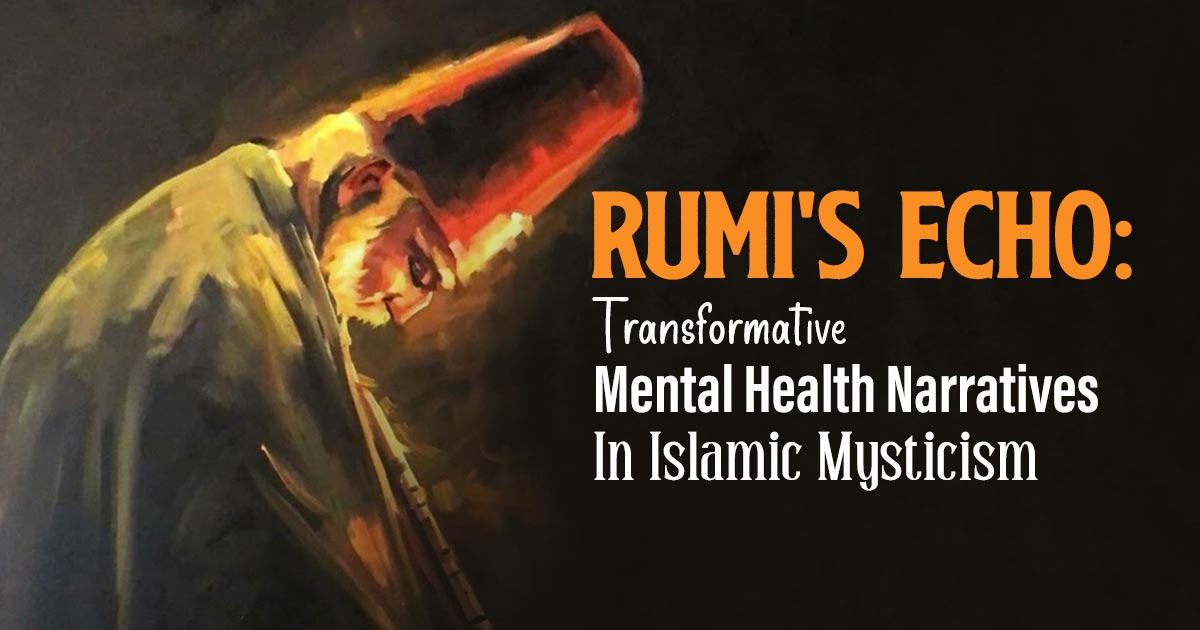Jalāl al-Dīn Muḥammad Rūmī, commonly known as Rumi, was a 13th-century Persian poet, jurist, Islamic scholar, theologian, and Sufi mystic. The renowned Rumi poems about love and life, deeply rooted in the Islamic tradition, has transcended cultural and religious boundaries, captivating the hearts and minds of people worldwide. Beyond the beauty of his verses lies a profound understanding of human psychology, offering insights into the complexities of the mind and the journey of the soul.
The Sufi Path And Psychological Transformation
The Rumi poems about love and life often reflect the principles of Sufism, a mystical Islamic practice focused on spiritual development, self-purification, and the attainment of closeness to the divine. At the core of Sufi teachings is the idea of inner transformation, and Rumi’s verses serve as a guide through the intricate pathways of the human psyche.
One key psychological concept in Rumi’s work is the idea of self-discovery and the journey towards self-realization. The “self” in Sufism goes beyond the superficial layers of personality; it delves into the essence of one’s being. The anecdotes of mental health in Rumi’s poetry invite readers to embark on an inward journey, encouraging introspection and self-awareness as essential components of psychological growth.
Love As A Transformative Force
Rumi’s poetry is infused with the theme of love, but not merely in the conventional sense. The Rumi poems about love and life go beyond the romantic and delve into the transformative power of divine love. In Sufi psychology, divine love is seen as a catalyst for inner change, a force that can purify the soul and elevate the individual to higher levels of consciousness.
Rumi’s famous concept of “the Beloved” symbolizes the divine presence that permeates every aspect of existence. The yearning for union with the Beloved becomes a metaphor for the human soul’s yearning for reunion with the divine source. Psychologically, this yearning reflects the innate human desire for connection, purpose, and transcendence.
The Whirling Dervishes And Ecstatic States
In many of the Rumi poems about love and life, he refers to the mesmerizing dance of the whirling dervishes, a Sufi practice that aims to induce a state of ecstasy and spiritual rapture. From a psychological perspective, the whirling dance can be seen as a form of moving meditation, a way to transcend the limitations of the ego and attain a heightened state of consciousness.
The ecstatic states experienced by the whirling dervishes align with psychological concepts such as flow and altered states of consciousness. Rumi suggests that through surrendering to the rhythm of the dance, individuals can transcend the ordinary and access a realm of heightened awareness. This resonates with modern psychological theories emphasizing the benefits of mindfulness and the potential for altered states to facilitate psychological healing and transformation.
The Paradox Of Existence
Rumi often explores the paradoxes inherent in the human experience, weaving them into the fabric of his poetry. He acknowledges the dualities of joy and sorrow, love and pain, and life and death. From a psychological perspective, the acceptance of paradox in Rumi poems about love and life aligns with the principles of dialectical thinking, a cognitive approach that emphasizes the coexistence of opposing forces.
The acceptance of paradox is a crucial aspect of psychological well-being, as it allows individuals to navigate the complexities of life without succumbing to black-and-white thinking. The Rumi poems about love and life encourage readers to embrace the inherent contradictions of existence, fostering a more nuanced and resilient psychological outlook.
The Ego And The Annihilation Of Self
Central to Sufi psychology is the concept of the ego, often referred to as the nafs. Rumi emphasizes the necessity of transcending the ego for spiritual growth, portraying the ego as a veil that obstructs the soul’s connection with the divine. The annihilation of the self, or fana in Sufi terminology, is a theme recurrent in Rumi’s work.
From a psychological standpoint, the annihilation of the self can be understood as a process of ego dissolution, akin to concepts found in transpersonal psychology and Eastern contemplative traditions. In the wisdom of mental health in Rumi’s poetry, he suggests that by letting go of the ego’s attachments and illusions, individuals can experience a profound shift in consciousness, opening the door to a deeper understanding of the self and the divine.


